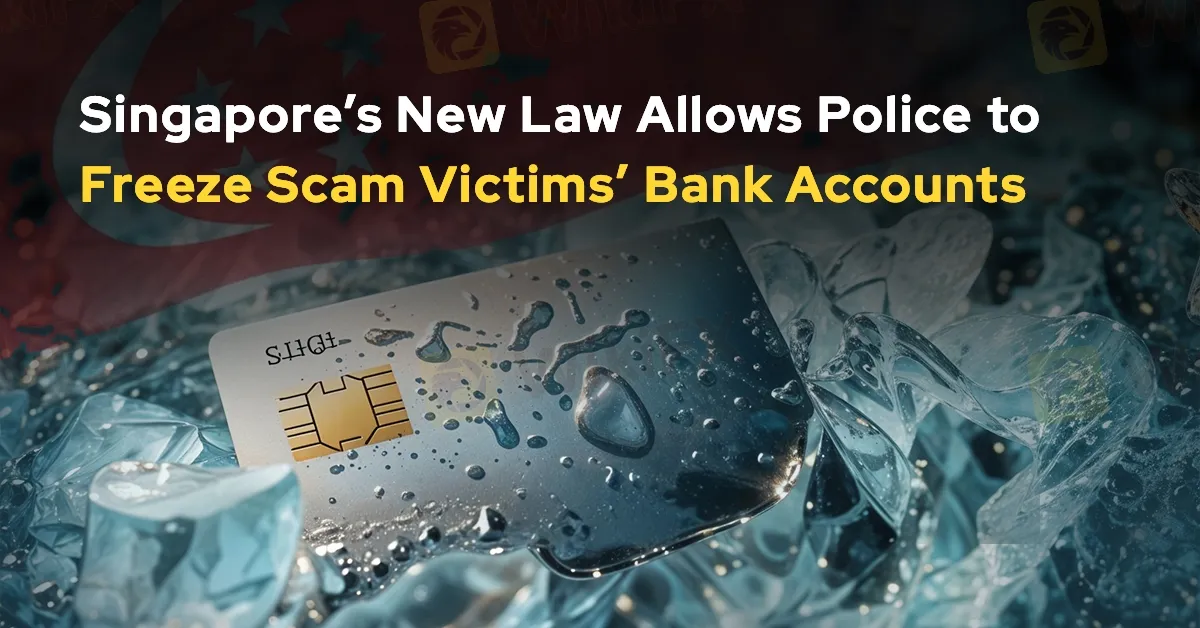简体中文
繁體中文
English
Pусский
日本語
ภาษาไทย
Tiếng Việt
Bahasa Indonesia
Español
हिन्दी
Filippiiniläinen
Français
Deutsch
Português
Türkçe
한국어
العربية
Singapore’s New Law Allows Police to Freeze Scam Victims’ Bank Accounts
Abstract:Singapore has enacted a new law enabling police to freeze bank accounts of scam victims as a last-resort measure to prevent financial losses.

Singapore has enacted a new law enabling police to freeze bank accounts of scam victims as a last-resort measure to prevent financial losses. The legislation empowers authorities to issue restriction orders to banks when they determine that a victim is at risk of transferring money to scammers, withdrawing funds for fraudulent purposes, or applying for loans to benefit fraudsters.
Scams have become a significant concern for the city-state, which is known for its status as a wealthy financial hub. In the first half of 2024, there were 26,587 recorded scam cases, resulting in losses of S$385.6 million (US$283.34 million or RM1.27 billion), according to police data. In 2023, victims lost S$651.8 million, while 2022 saw a record loss of S$660.7 million.
Restriction orders, which last for an initial period of 30 days, are designed to act swiftly to protect victims. Police can extend these orders up to five times or lift them earlier if deemed appropriate. Authorities will assess factors such as whether the victim has already transferred funds to scammers or remains in communication with them.

By default, these restriction orders will apply to Singapores seven major retail banks: OCBC, DBS, UOB, Maybank, Standard Chartered, Citibank, and HSBC. However, other financial institutions may also be included if necessary.
Sun Xueling, the Minister of State for Home Affairs, emphasised the importance of acting promptly to minimise losses. She stated that restriction orders should be imposed or lifted within hours, not days, to protect victims effectively. Sun also highlighted that in many cases, victims life savings could be at stake.
While the law aims to protect individuals, authorities have clarified that the responsibility cannot rest with them indefinitely. If a victim continues to engage with scammers after the maximum restriction order period, they must ultimately bear the consequences of their decisions.
The Ministry of Home Affairs has indicated plans to adapt the measure as needed. Officials are considering extending the scope of restriction orders to cover cryptocurrency exchanges, remittance services, and e-wallet providers.

Disclaimer:
The views in this article only represent the author's personal views, and do not constitute investment advice on this platform. This platform does not guarantee the accuracy, completeness and timeliness of the information in the article, and will not be liable for any loss caused by the use of or reliance on the information in the article.
Read more

The Daily Habits of a Profitable Trader
Every professional trader follows a structured approach to ensure they are well-prepared, disciplined, and able to seize opportunities with confidence. Whether you are a seasoned investor or an aspiring trader, adhering to a robust daily checklist can significantly enhance your performance. Use this checklist to check if you are a qualified trader

The Impact of Interest Rate Decisions on the Forex Market
Interest rate changes determine currency attractiveness, influencing capital flows and exchange rate trends. Understanding this mechanism helps investors navigate the forex market effectively.

How a Housewife Lost RM288,235 in a Facebook Investment Scam
A 47-year-old housewife in Malaysia recently fell victim to an online investment scam, losing a substantial sum of RM288,235 after engaging with a fraudulent scheme advertised on Facebook.

A Trader’s Worst Mistake: Overlooking Broker Reviews Could Cost You Everything
In today’s digital age, reviews influence nearly every decision we make. When purchasing a smartphone, television, or home appliance, we pore over customer feedback and expert opinions to ensure we’re making the right choice. So why is it that, when it comes to choosing an online broker where real money and financial security are at stake many traders neglect the crucial step of reading reviews?
WikiFX Broker
Latest News
TradingView Brings Live Market Charts to Telegram Users with New Mini App
Trump tariffs: How will India navigate a world on the brink of a trade war?
Interactive Brokers Launches Forecast Contracts in Canada for Market Predictions
Authorities Alert: MAS Impersonation Scam Hits Singapore
Stocks fall again as Trump tariff jitters continue
INFINOX Partners with Acelerador Racing for Porsche Cup Brazil 2025
Regulatory Failures Lead to $150,000 Fine for Thurston Springer
April Forex Trends: EUR/USD, GBP/USD, USD/JPY, AUD/USD, USD/CAD Insights
March Oil Production Declines: How Is the Market Reacting?
Georgia Man Charged in Danbury Kidnapping and Crypto Extortion Plot
Currency Calculator







